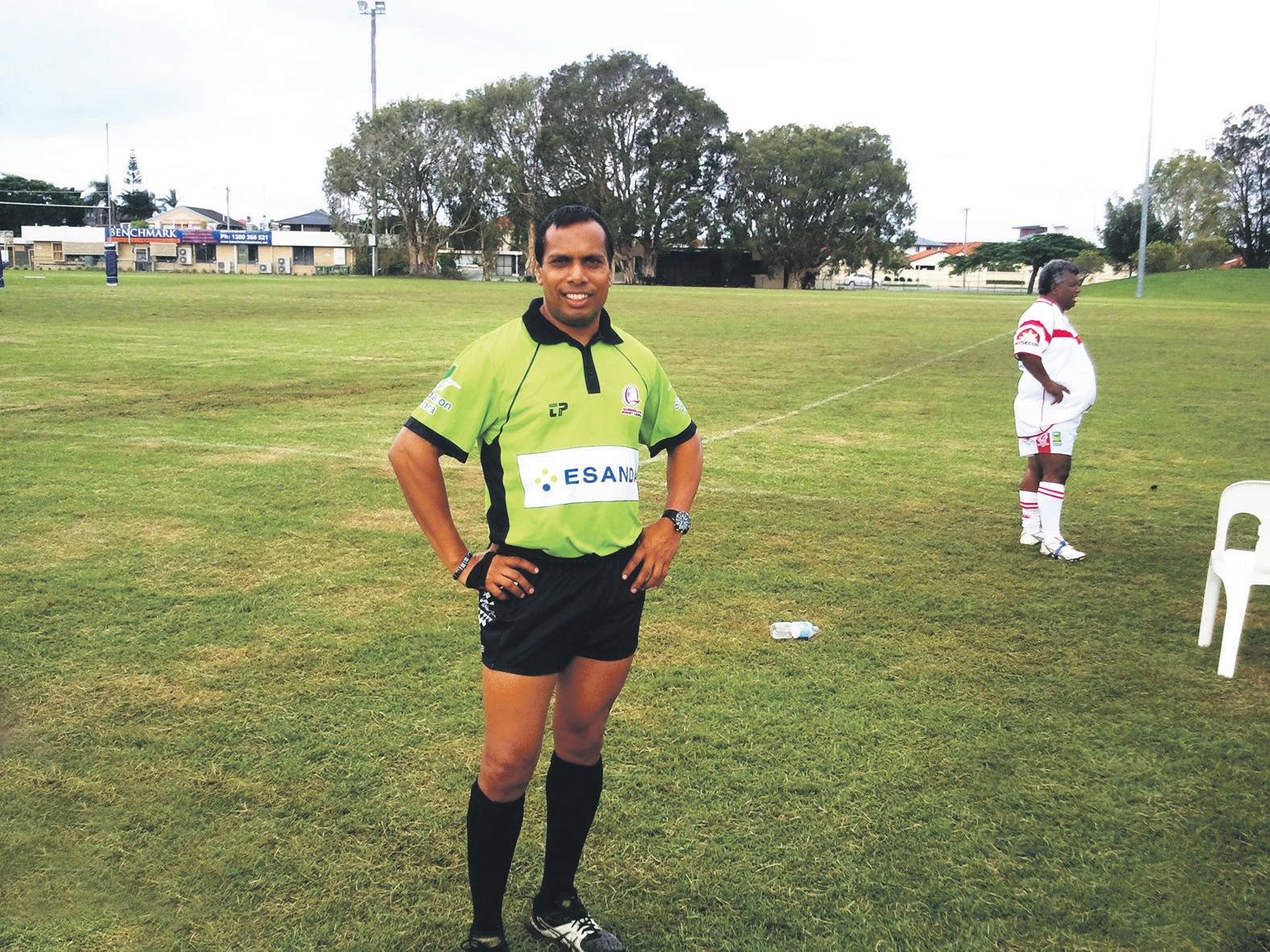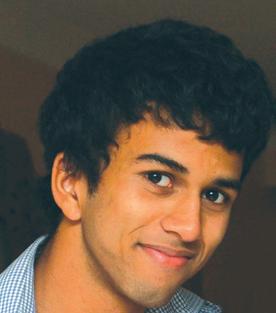
4 minute read
Gunning for glory
from 2013-11 Sydney (2)
by Indian Link
Gunner Prasad becomes the first Fiji-Indian rugby referee in Australia
BY RITAm mITRA
If there is a sport in Australia under-represented by those with a subcontinental background, rugby, in all its formats, is a serious contender. But Gayanendra ‘Gunner’ Prasad, who recently became the first FijiIndian rugby referee in Australia, is breaking the mould. As the Rugby League World Cup unfolds on the other side of the world, Gunner will be watching on, with a set of especially keen eyes.
Born in the small village of Vuniyalyala in Labasa, Fiji, Gunner had always followed the immensely popular sport of rugby union. When he came to Australia to study in 1989, he soon fell in love with Rugby League and started following the Brisbane Broncos in the NRL.
“I loved the intensity, the defence and the star attraction of big name players such as Wally Lewis, Mal Meninga, Allan Langer to name a few,” says Gunner.
After moving back to Fiji on finishing his studies, it was a 1996 Fijian National Rugby League job advertisement for referees in the local paper that began Gunner’s rise to the top. Speaking of his decision to give it a shot, Gunner recalls, “Rugby League had just started in Fiji in 1992 so it was a pretty young sport and the thought of me making a contribution was quite inviting. However, I also knew this was going to be a huge step because Rugby League was played by native Fijians, and me becoming an Indian Fijian referee was akin to going into uncharted waters”.
Although Gunner’s rise since his early years has certainly been meteoric, it has not been without its struggles. “The biggest challenge I faced during my formative years as a referee was being accepted as a member of a Rugby League community in Fiji because there were a few incidents, which highlighted that I was considered as an ‘outsider’,” says Gunner. Having earned the respect of the players, spectators and Fijian Rugby League community in general, he then had to do it all over again, in
Australia. Despite one incidence of racial vilification in Queensland four years ago, with 18 years of experience under his belt, Gunner has now earned a reputation as a ‘hard, but very fair’ referee amongst players and spectators.
Given the physical, demanding nature of Rugby League, it is no surprise that Gunner has to stay on top of his fitness in order to stay on top of the game for 80 minutes. Gunner’s regime includes waking up at 4.30am on at least four weekdays, and starting a 90-minute gym session at 5am. The games themselves are no easier - in a typical week of refereeing, Gunner will run between 30 and 40kms. As a high school sports and mathematics teacher, he also manages to squeeze in a bit more fitness work during working hours. “Basically,” says Gunner, “you need to be fitter than the players if you want to be successful as a Rugby League referee”.
Gunner’s achievements are not confined to the field of play; he has also done a great deal for the development of the game in Fiji. On a visit to Fiji in

2010, he refereed a few games and noticed that a number of junior rugby league players were playing without boots. He was also disheartened to see that the different senior and junior sides would have to share jerseys between themselves because there was only one set of jerseys for each – so players would often be pulling on sweaty, dirty jerseys. “It did affect me a bit because it reminded me of my younger days when I was not able to afford to buy boots. I knew there were heaps of boots and jerseys that were being thrown away in Australia, so every year since then I have collected boots, jerseys, training gears, balls and taken them over to Fiji for clubs and players,” he says. As a result of his philanthropy, Gunner was recognised by the President of the Gold Coast Rugby League with an award for services to the game of Rugby League in Fiji.
In a long and illustrious career, the high point for Gunner was only in October this year, when he was given the privilege of refereeing the warm-up match between Fiji Bati vs President’s
XIII in Nadi, sharing the field with household names such as Petero Civoniceva, Aquila Uate and Ashton, Korbin and Tariq Sims. Gunner also officiated in the 2013 Battle of the Bati in Suva, which was televised live and featured a massive crowd of 14,000.
Gunner concedes he started refereeing too late to make a full-time career of it in the NRL, but has no hesitation in recommending the career to interested youngsters. “It is a very rewarding profession,” he says.
“The career path is there if you want to become a NRL referee, but you do need to start by the age of thirteen or fourteen. The financial benefit is quite huge too. If refereeing is not your cup of tea, then definitely consider the options of trainer, first aid, manager and various positions as a volunteer of Rugby League as you grow up”.
After he retires from refereeing, Gunner looks forward to coaching referees and improving the standard of refereeing in Fiji. Looking back on his career, Gunner is more than satisfied.
“So far it has been a good ride. Apart from a few minor incidents I have been treated as any other referee here in Australia. You do cop a bit of banter, but most of the time it is all in good fun. It is part of the Australian culture. In Fiji, I have been treated with the utmost respect…Whenever I go to referee in Fiji, the players, club officials, spectators, fellow referees and administrators of the game consider me as one of their own and look out for me. I absolutely love refereeing in Fiji,” he says. Having never set out to be a rugby league referee, Gunner’s story is a shining example of the fruits of simply following your passion. Speaking of the journey, Gunner says, “I loved the game of Rugby League and when the opportunity to become a referee presented itself to me, I grabbed it with both hands. I knew there would be few obstacles on the way to become a referee but once I jumped into it, I was determined to succeed”. Gunner credits the support of his mentors, Master Vito Qaqa and Master Takanana Nunu, as well as the Fijian National Rugby League administrators Culden Kamea and Master Iosefo Bele, who encouraged him to keep going. Of course, no career would be complete without the support of a loving family – including his wife Sophia, and his two children.

